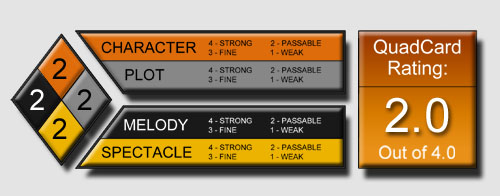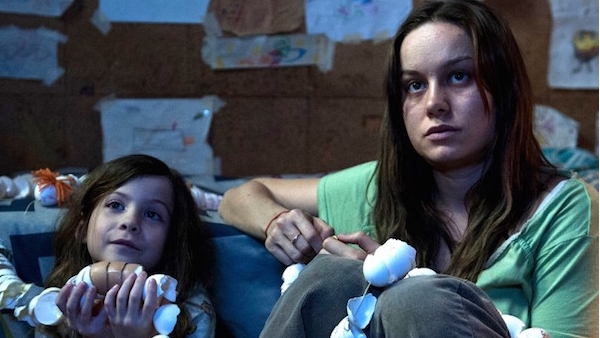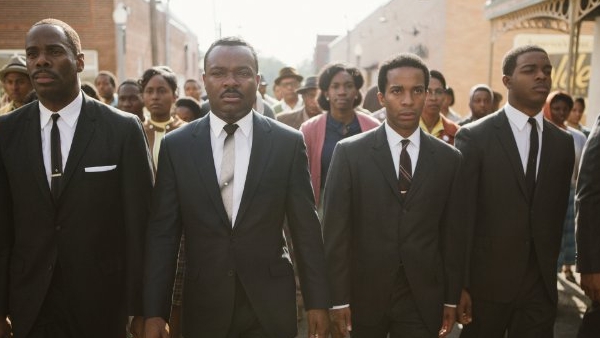
Typically, a chorus of disapproval accompanies the arrival of celebrated foreign filmmakers in Hollywood. The studio system, so goes the familiar song and dance, will suck the life right out of their work and excise everything special about them in favor of formula and higher box office returns. There are, of course, exceptions. Alfred Hitchcock and Paul Verhoeven, for instance, produced some of their best films their respective Tinseltown tenures, but they could well be examples that prove the rule; far more often we see directors visiting from overseas, like Susanne Bier and Fernando Meirelles, get chewed up and spat out on the sidewalk, their style rendered unrecognizable courtesy of executive meddling.
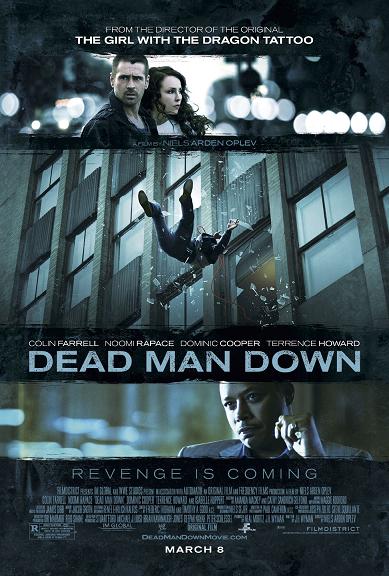 So it’s probably a good thing that Danish filmmaker Niels Arden Oplev isn’t that good of a craftsman to begin with; nobody will decry his fall from artiste status because he never attained it in the first place. His tedious, slack interpretation on The Girl With the Dragon Tattoo wound up being erased from public memory after David Fincher unsuccessfully tried his hand at remaking it, and little else in Oplev’s body of work has managed to earn him accolades either domestically or across the pond. At best, he has mild franchise recognition via Dragon Tattoo, at worst he’s just an unknown European lacking a cinematic identity of his own. Clearly someone at WWE Studios found the latter quality attractive.
So it’s probably a good thing that Danish filmmaker Niels Arden Oplev isn’t that good of a craftsman to begin with; nobody will decry his fall from artiste status because he never attained it in the first place. His tedious, slack interpretation on The Girl With the Dragon Tattoo wound up being erased from public memory after David Fincher unsuccessfully tried his hand at remaking it, and little else in Oplev’s body of work has managed to earn him accolades either domestically or across the pond. At best, he has mild franchise recognition via Dragon Tattoo, at worst he’s just an unknown European lacking a cinematic identity of his own. Clearly someone at WWE Studios found the latter quality attractive.
Yes, that’s right. WWE Studios. If it’s a bad sign when a film’s credits open on the Hasbro logo, it’s probably just as grim a portent when they commence with that of World Wrestling Entertainment. The good news, surprisingly enough, is that Dead Man Down isn’t half as atrocious as it ought to be given its points of origination, though that’s not to say the film deserves your undivided attention and should be taken all that seriously. Its best elements come from performance; in the leading role, Colin Farrell broods and brawls with stoney-faced focus, while Noomi Rapace (Oplev’s eponymous heroine in his version of Dragon Tattoo) alternates between wide-eyed, bewildered fawning and full-bore nuttiness. Why anyone thought that their screen pairing would work is beyond me, but credit where it’s due– they’re a treat together.
Unfortunately they’re just about the only source of charm Dead Man Down has going for it. The film plunges its hands deep into the blood-stained, icy waters of revenge as it follows Victor’s (Farrell) plan to bring violent justice upon a vicious gang kingpin, Alphonse (Terrence Howard, saddled with as shallow a role as one could imagine), for the death of the former’s wife and child. The catch is that Alphonse has no idea that Victor’s out to get him, or who Victor truly is; the reticent Victor has a spot on Alphonse’s payroll, and as we meet him he’s using his position to destroy his enemy’s organization from the inside out.

Then Victor meets Beatrice, and everything gets faux-complicated. Beatrice witnessed Victor murdering a man in his apartment, and she’s using a cell phone video of the grisly event to blackmail him into aiding her in her own quest for retribution. Naturally, she falls in love with him along the way, because this is a Hollywood movie and that’s what’s supposed to happen. I almost can’t criticize Dead Man Down for that convention; the same thing happens in The Girl With the Dragon Tattoo, and Oplev made that movie back in Sweden. (Although we can point the finger at Stieg Larsson, who wrote the book that picture is based on, for that.)
Watching Dead Man Down feels a lot like watching a much, much poorer version of Leon, with Victor taking the place of the cold, calculated killing machine and Beatrice filling in for the woman-child (child-woman?) who reaches out to connect with him. And convince him to murder someone for her. Honestly, Beatrice’s story and her desire for vengeance feels dangerous and psychotic, and Victor’s methods of body disposal and reprisal range from delightfully action-oriented to twisted and macabre; in other words, they’re a fun couple, and the scene in which Beatrice reveals her scheme to Victor makes for one of the picture’s wacky, over-the-top high points. She savagely explicates her demands as the score reaches a screeching crescendo, and we start to think that Oplev might be taking us someplace very weird but potentially worthwhile.
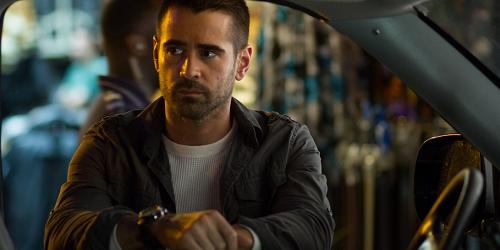
It’s just a shadow on the wall, though, as there’s little other pleasure to be found in Dead Man Down. Too often, Oplev forces his characters to spend an inordinate amount of time sitting, waiting, and doing nothing of value. Victor’s plot involves a whole lot of trips to FedEx, some random torture, and two of the film’s three total action scenes; when F. Murray Abraham, here playing a close and well-connected friend aiding Victor in designs, berates the tortured soul for taking such a long time to exact his vengeance, we’re inclined to agree with him. Dead Man Down drags and gains nothing for taking its time, only rarely exploding into over-edited, unevenly shot action sequences and inspired moments of loony verve.
G-S-T Ruling:
There’s something to be said about taking a narrative like this seriously and handling it with care, and if anything Oplev seems to bear earnest intentions. But he lacks the filmmaking skill to see his vision through. He’s not totally at fault; for all the direction Dead Man Down‘s first two acts set for its third, the production turns down a decidedly standard path with a wholly rote climactic shoot-out. As much as the rest of the movie awkwardly stutters and shuffles its feet, there’s at least the hint of a soul within its eccentricities. By the end, all of that energy has dissipated into cliche. If the film ends up a lost cause, though, at least it doesn’t waste a valuable filmmaker.
